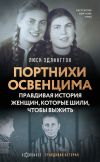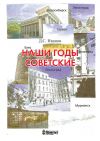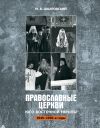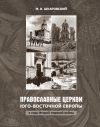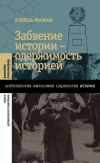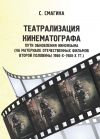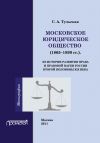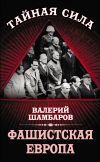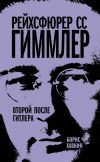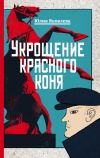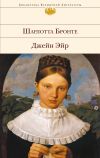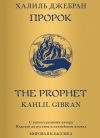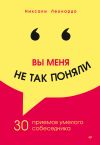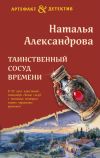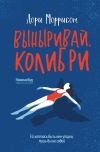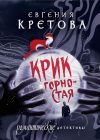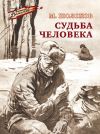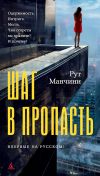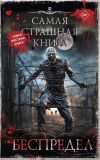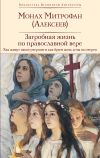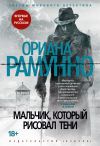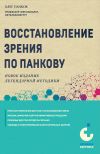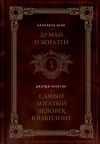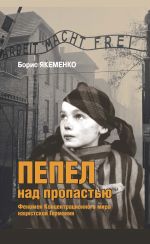
Автор книги: Б. Якеменко
Жанр: Исторические приключения, Приключения
Возрастные ограничения: +16
сообщить о неприемлемом содержимом
Текущая страница: 27 (всего у книги 27 страниц)
Якеменко Б., Воронин С. Феномен «мусульманина» в пространстве нацистского концентрационного лагеря // Вестник РУДН. Серия «Всеобщая история». 2019. № 3 (на английском языке).
Ямпольская А. Эмманюэль Левинас. Философия и биография. Киев, 2011.
Ямпольский М. Меморизация Холокоста как памятник субъективности // Конференция «Неофициальная меморизация травматического опыта» («Международный Мемориал», 5–6 апреля 2013 года). URL: http://gefter.ru/archive/8508.
Янкелевич В. Смерть. М., 1999.
Ясперс К. Вопрос о виновности. М., 1999.
Accadia D. La lingua nei campi nazisti della morte // I sentieri della ricerca. Rivista di storia contemporanea, 9–10, Edizioni centro studi «Piero Ginocci» Crodo, 2009.
Adorno Th. W. Education after Auschwitz // Critical Models: Interventions and Catchwords. Translated and with a preface by H. W. Pickford. New York: Columbia UP, 1998.
Améry J. Hand an sich legen. Diskurs uber den Freitod. Stuttgart, 1976.
Améry J. Über das Altern. Revolte und Resignation. Klett-Cotta Neue Auflage. Stuttgart, 2010.
Antelme R. L’Espèce humaine. Paris: Robert Marin, 1947.
Askenasy H. Are We All Nazis? Published by Stuart (Lyle) Inc., U.S., 1978.
Auschvitz. Camp de concentration et d’extermination. Centre de Documentation Juive Contemporaire, 2016.
Becker M., Bock D. «Muselmänner» und Häftlings– gesellschaften. Ein Beitrag zur Sozialgeschichte der nationalsozialistischen Konzentrationslager // Planert, Ute/Süß, Dietmar/Woyke, Meik (Hrsg.) Sterben, Töten, Gedenken. Zur Sozialgeschichte des Todes. Bonn: J. H. W. Dietz Nachf. 2015.
Bernbeck R., Pollock S. «Archäologie der Nazi-Zei» Diskussionen und Themen. // Historische Archaologie. Vol. 2013. Issue 2.
Berning C. Vom «Abstammungsnachweis» zum «Zuchtwart». Vokabular des Nationalsozialismus. Mit einem Vorwort von Werner Betz. Berlin: Verlag Walter de Gruyter, 1998.
Bettelheim B. Individual and Mass Behavior in Extreme Situations // Journal of Abnormal and Social Psychology. 1943. No. 38.
Bloch H.A. Personality of Inmates of Concentration Camps // American Journal of Sociology. 1947. No. 52 (4)
Bluhm H. How did they survive? Mechanism of Defence in Nazi Concentration Camps // American Journal of Psychotherapy. 1999. Vol. 53. No. 1.
Bondy C. Problems of Internment Camps // The Journal of Abnormal and Social Psychology. Vol. 38 (4). Oct 1943.
Borowski T. Krotka Przedmowa // Utwory wybrane. Wroclav – Warszawa – Krakow, 1991.
Browning Ch. R. Ordinary Men. Reserve Police Battalion 101 and the Final Solution in Poland. New York, 1992.
Brückner W. «Arbeit macht frei» Herkunft und Hintergrund der KZ-Devise. Leske + Budrich Verlag Opladen, 1998.
Buchenwald ostracism and violence 1937 to 1945. Guide to the permanent exibition at the Buchenwald memorial. Gottingen, 2017.
Bylismy w Oswiecimiu. 6643 Janusz Nel Siedlecki, 75817 Krysytn Olszewski, 119198 Tadeusz Borowski. (Girs Anatol) Verlag: Oficyna Warszawska na Obczyznie, Munich, 1946.
Chiapponi D. La lingua nei lager nazisti. Carocci editore, 2004.
Clendinnen I. Reading the Holocaust. Cambridge: Cambridge University Press, 1999.
Colls S. Holocaust Archaeology: Archaeological Approaches to Landscapes of Nazi Genocide and Persecution. Journal of Conflict Archaeology 7(2), 2012
Die nationalsozialistischen Konzentrationslager – Entwicklung und Struktur. 2. Bd. Göttingen: 1998, 1192 s.; Herbert U., Orth K., Dieckmann Ch. Das nationalsozialistische Lager. Geschichte, Erinnerung, Forschung / Hrsg. Herbert U. u.a.
Diner D. Beyond the Conceivable: Studies on Germany, Nazism and Holocaust. Berkley: University of California Press, 2000.
Doerr K. Words of Fear, Fear of Words: Language Memories of Holocaust Survivors. Explorations in Anthropology. Vol. 9. No. 1. February, 2009.
Fackenheim E. To Mend the World: Foundations of Post-Holocaust Jewish Thought. New York: Schocken Books, 1982.
Faulkner Rossi L. Wehrmacht Priests: Catholicism and the Nazi War of Annihilation. Published by Harvard University Press, 2015.
Federn E. Terror as a System. Concentration Camp (Buchenwald as it was) // Psychiatric Quarterly Supplements. 1948. No. 22.
Federn E. Witnessing psychoanalysis. From Vienna back to Vienna via Buchenwald and the USA. London: Karnac Books, 1990.
Felix L. Sparks. Dachau and its liberation. URL: http://45thinfantrydivision.com/index14.htm.
Felman S., Laub D. Testimony: Crisis of Witnessing in Literature, Psychoanalysis, and History. Ney York; London, Routledge. 1992.
Fiasco by Imre Kertész – review. Nicholas Lezard enjoys a comedy of errors. URL: https://www.theguardian.com/books/2011/jun/02/fiasco-imre-kertesz-review.
Freund F. and Pawlowsky V. (eds.), Barta D. Tagebuch aus dem KZ Ebensee. Vienna, 2005.
Gluck Wood A. Holocaust. The events and their impact of real people. Great Britain, 2007.
Hutman B. Nazis never made human-fat soap. The Jerusalem Post. International Edition. May 5. 1990.
Interpreting in Nazi Concentration Camps. Edited by Michaela Wolf. With an essay by Primo Levi. Bloomsbury Academic. An imprint of Bloomsbury Publishing Inc. 2016.
Jankélévitch V. Should We Pardon Them? Translated by A. Hobart // Critical Inquiry 22. 1996. No. 3.
K. L. Buchenwald, Post Weimar. Buchenwald and Mittelbau-Dora Memorial Foundation, 2006.
Kautsky B. Teufel und Verdammte. Erfahrungen und Erkenntnisse aus sieben Jahren in deutschen Konzentrationslagern. Zürich: Büchergilde Gutenberg, 1946.
Kępiński А. Refleksje oświęcimskie: rampa. Psychopatologia decyzji. Przegląd Lekarski – Oświęcim. 1968. Nо. 1.
Kertesz I. Fiasco. Melville House, 2013.
Kertesz I. Galley Boat-log (Galyanaplo): Excerpts // Imre Kertesz and Holocaust Literature. Eds. Vasvari, Louise O. and Stephen Totosy de Zepetnek. West Lafayette, IN: Purdue University Press, 2005.
Keys A., Brozek J., Henschel A., Miskelsen O., Taylor H.L. The Biology of Human Starvation. Minneapolis: University of Minnesota Рress, 1950.
Klüger R. Still Alive. New York: Feminist Press, 2001.
Kogon E. The theory and practice of hell. The german concentration camp and the system behind them. New York, 2006.
Körte M. Stummer Zeuge. Der «Muselmann» in Erinnerung und Erzählung // Silke Segler-Messer (Hrsg.): Vom Zeugnis zur Fiktion. Repräsentation von Lagerwirklichkeit und Shoah in der französischen Literatur nach 1945. Frankfurt am Main, 2006.
Langbein H. Die Stärkeren. Ein Bericht. Stern-Verlag, Wien, 1949.
Langbein H. People in Auschwitz. The University of North Carolina Press, 2005.
Langer L.L. Holocaust Testimonies: the Ruins of Memory. New Haven. London. Yale University Press, 1991.
Legerer А. Preparing the Ground for Constitualization through Reconciliation Work // German Law Journal. Vol. 06. No. 02. February 2005.
Levi P. Aushvitz testimonies. With Leonardo de Benedetti. 1945–1986. Polity press, 2018.
Levi P. Survival in Auschwitz and the Reawakening: Two Memoirs. Summit Books, New York, 1986.
Levi P. The black hole of Auschvitz. Cambrige, 2016.
Levy D., Szneider N. Memory Unbound. The Holocaust and The Formation of Cosmopolitan Memory // European Journal of Social Theory. 5 (1).
Lipman S. Laughter in Hell: Use of Humor During the Holocaust. Tel-Aviv, 1991.
Meinecke F. Die deutsche Katastrophe. Wiesbaden, 1949.
Milgram S. Behavioural Study of Obedience // Journal of Abnormal and Social Psychology. 1963. Vol. 67. No. 4.
Milgram S. Obedience to Authority: an experimental view. London, 1974
Morch G. (ed). The Concentration Camp SS 1936–1945. Excesses and Direct Perpetrators in Sachsenhausen Concentration Camp. An exhibition at the historical site. Berlin, 2016.
Morch G. Ohm A. (eds). The Administrative Centre of the Concentration Camp terror. The Concentration Camp Inspectorate 1934–1945. An exhibition at the historical site. Berlin, 2015.
Morch G. and Ley A. (ed). Sachsenhausen Concentration Camp 1936–1945. Events and Developments. Berlin, 2016.
Mozes Kor E. Forgiving Dr. Mengele URL: https://www.plough.com/en/topics/life/forgiveness/forgiving-dr-mengele.
Mozes Kor E. If I met Mengele now, I’d forgive what he did to me. URL: https://www.theguardian.com/world/2005/jan/09/secondworldwar.theobserver.
Neander J. «Symbolically burying the six million»: post-war soap burial in Romania, Bulgaria and Brazil // Human Remains and Violence. 2016. 2 (1).
Neurath P. The Society of Terror: Inside the Dachau and Buchenwald Concentration Camps. Edited by Nico Stehr and Christian Fleck. Paradigm Publishers, 2005.
Nora P. Realms of Memory: Rethinking the French Past. New York: Columbia University Press, 1996.
Nussbächer А. Ich bin zum Leben verurteilt. URL: https://www.fr.de/politik/ich-leben-verurteilt-10987053.html.
Ostrower Ch. It kept us alive. Humor in the Holocaust. Jerusalem, 2014.
Patterson D. Open wounds: The Crisis of Jewish Thoughts in the Aftrrmath of the Holocaust. Seattle. University of Washington Press, 2006.
Paul B. Jackot. Architecture of the Holocaust URL: https://www.ushmm.org/m/pdfs/20170502-Jaskot_OP.pdf.
Pawełczyńska A. Values and Violence in Auschwitz. A Sociological Analysis, trans. Catherine S. Leach, Berkeley: University of California Press, 1980.
Pitzer A. One long night. A global history of concentration camps. New York – Boston – London, 2017.
Porat D. The Fall of a Sparrow: The Life and Times of Abba Kovner. Stanford Scholarship, 2009.
Posmysz Z. Znam katów z Belsen. Głos Ludu. 30.09.1945
Riedl M. A Collective Messiah: Joachim of Fiore’s Constitution of Future Society. URL: https://www.revistamirabilia.com/sites/default/files/pdfs/2012_01_03.pdf.
Rousset D. The Other Kingdom. New York: Reynal and Hitchcock, 1947.
Ryn Z., Klodzinski S. An der Grenze zwischen Leben und Tod. Ein Studie über die Erscheinung des «Muselmann» in Konzentrationslager // Auschwitz-Hefte. Vol. 1. Weinheim & Basel: Beltz, 1987.
Scarry E. The Body in pain: The Making and Unmaking of the World. New York: Oxford University Press, 1985.
Seidel-Slotty I. Sprachwandel im Dritten Reich: Eine kritische Untersuchung faschistisher Einflusse. Halle: Sprache und Literatur, 1961.
Simon M. Das Wort Muselmann in der Sprache der deutschen Konzentrationslager // Julius H. Schoeps (Hrsg.): Aus zweier Zeugen Mund. Gerlingen, 1992.
Stahl Ch. Sehnsucht Brot: Essen und Hungern im KZ-Lagersystem Mauthausen. Edition Mauthausen, 2010.
Stangneth B. Eichmann vor Jerusalem – Das unbehelligte Leben eines Massenmörders. Arche Verlag, Hamburg, 2011
Sternberger D., Storz G., Süskind W.E. Aus dem Wörterbuch des Unmenschen. Hamburg: Claassen, 1957.
Szmaglewska S. Dymy nad Birkenau. Warszawa: Czytelnik, 1945.
Szmaglewska S. Niewinni w Norymberdze. Warszawa: Książka i wiedza, 1972.
The Language of the Camps. URL: https://www.jewishgen.org/forgottencamps/general/languageeng.html.
The murderers among us; the Simon Wiesenthal memoirs. New York: McGraw-Hill, 1967.
Tillion G. A la recherché de la verite // Les Cahiers du Rhone. Neuchatel, 1946.
Toaff D., Ascarelli E. Rückkehr nach Auschwitz. Interview mit Primo Levi // Primo Levi: Bericht über Auschwitz. Philippe Mesnard, ed. Berlin: Basis Druck, 2006.
Warum wurde ich zum Leben verurteilt? Erinnerungen / Anna Nussbächer. Übersetzung aus dem Ungarischen, Géza Deréky. Frankfurt a. M. Public Book Media Verlag, 2012.
Weinmann M. (ed). Das nationalsozialistische Lagersystem (CCP). Mit Beiträgen von Anne Kaiser und Ursula Krause-Schmitt. Frankfurt a. M., 1990.
Weiss R. Journey through hell. A woman’s account of her experiences at the hands of the Nazis. Published by Vallentine Mitchell. London, 1961.
Wieviorka A. On Testimony // Geoffrey Hartman. Holocaust Remembrance. Oxford u. Cambrige, Mass., 1994.
Wittler K. «Muselmann». Anmerkungen zur Geschichte einer Bezeichnung // Zeitschrift für Geschichtswissenschaft 61. 2013. Nо. 12.
Об авторе
Якеменко Борис Григорьевич. Кандидат исторических наук, доцент, заместитель директора Центра исторической экспертизы и государственного прогнозирования при РУДН, ведущий руководитель интеллектуальной студии «Что читать», ведущий авторской программы «Наши» на канале «Соловьев Live». Автор школьного учебника по истории Отечества для 10–11-х классов (одобрен Министерством образования и науки РФ) и более 100 печатных работ (монографии, статьи, учебники и учебные пособия).
Якеменко Борис Григорьевич. Кандидат исторических наук, доцент, заместитель директора Центра исторической экспертизы и государственного прогнозирования при РУДН, ведущий руководитель интеллектуальной студии «Что читать», ведущий авторской программы «Наши» на канале «Соловьев Live». Автор школьного учебника по истории Отечества для 10–11-х классов (одобрен Министерством образования и науки РФ) и более 100 печатных работ (монографии, статьи, учебники и учебные пособия).
Правообладателям!
Это произведение, предположительно, находится в статусе 'public domain'. Если это не так и размещение материала нарушает чьи-либо права, то сообщите нам об этом.